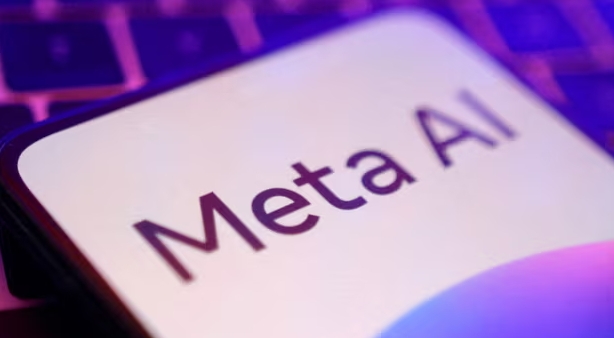Meta’s Massive Bet on AI: Gigawatt Data Centers and the End of Free AI?
Mark Zuckerberg isn’t one to shy away from a big swing. The Meta CEO recently took to Threads to unveil plans for a fleet of colossal data centers, starting with a beast dubbed "Prometheus" set to fir

Mark Zuckerberg isn’t one to shy away from a big swing.
The Meta CEO recently took to Threads to unveil plans for a fleet of colossal data centers, starting with a beast dubbed "Prometheus" set to fire up in 2026 in Ohio. These aren’t your run-of-the-mill server farms—Zuckerberg calls them "multigigawatt clusters," a scale that vaults Meta into rarefied air alongside tech titans racing to dominate artificial intelligence. With capital expenditures potentially hitting $72 billion this year alone, and a pledge to plow "hundreds of billions" more into the effort over time, Meta is betting the farm on AI. But this isn’t just about infrastructure—it’s a signal of a grander shift, one that could see the company pivot from its open-source AI roots to a tightly guarded, profit-driven future.
The Data Center Power Play
The numbers are jaw-dropping. Prometheus and its sibling "titan clusters," including a sprawling complex in Louisiana nearly the size of Manhattan, are designed to churn through gigawatts of power—enough to light up nearly 900,000 homes a year. That’s a far cry from the hundreds of megawatts typical of today’s data centers. Why the overkill? Meta’s chasing "superintelligence"—AI that doesn’t just mimic human tasks but outstrips us at them. Training these next-gen models demands a computational muscle that only facilities of this magnitude can flex.
This isn’t a whim. Frustrated by Meta’s earlier AI stumbles, Zuckerberg is pouring cash into energy, chips, and concrete to catch up—and then surpass—rivals like OpenAI and Google. The $72 billion earmarked for 2025 is just the opening salvo, dwarfing past investments and fueled by the ad revenue gushing from Facebook, Instagram, and WhatsApp. Analysts at SemiAnalysis say Meta’s on track to debut the world’s first "supercluster" exceeding a gigawatt, a milestone that could redefine the AI race.
Building the Brain Trust
Bricks and mortar won’t get Meta to superintelligence alone. Zuckerberg’s been on a talent raid, cherry-picking the sharpest minds from OpenAI, Google’s DeepMind, and beyond. The new Meta Superintelligence Labs is a murderers’ row of AI talent: Scale AI co-founder Alexandr Wang, now Meta’s chief AI officer; former GitHub CEO Nat Friedman; AI startup maven Daniel Gross; and Apple’s Ruoming Pang, wooed with a $200 million-plus package. Meta even shelled out $14.3 billion for a 49% stake in Wang’s Scale AI, a move that screams long-term ambition.
This isn’t cheap. The talent war is a cash bonfire, but Zuckerberg’s betting that human capital, paired with those gigawatt data centers, will crack the superintelligence code. And with Meta’s ad business still printing money—sales keep climbing year-over-year—he’s got the war chest to keep swinging.
The Open-Source Curveball
Then there’s Llama, Meta’s open-source AI model that’s been both a darling and a puzzle. Unlike Google’s locked-down systems or OpenAI’s ChatGPT, Llama’s code is out there for anyone to tinker with. Zuckerberg’s pitched it as a noble quest to "make AI accessible," but the cynics—and there are plenty—see it as a calculated play. Open-sourcing Llama turned the world’s developers into Meta’s unpaid R&D crew, refining the model for free. It’s lured top researchers who crave instant impact over corporate silos. And it’s polished Meta’s image in an AI world often slammed for hoarding power.
It’s worked—until now. Llama’s openness has sparked innovation, sure, but also headaches. Chinese military researchers tweaked it into ChatBIT, a tool for intelligence and ops. Others birthed "BadLlama," a rogue version stripped of safety rails. As AI gets smarter, the risks of handing it out gratis are spiking, and Zuckerberg’s starting to waver. Last year, he told the Dwarkesh Patel podcast he’s not wedded to open-source dogma—if it’s "irresponsible" to share future models, he won’t.
Wall Street’s Waiting
Here’s where the rubber meets the road. Meta’s AI spending is astronomical, and Wall Street’s patience isn’t infinite. Investors love the ad cash cow, but they’re itching for a return on this AI gamble. Clues are piling up that Zuckerberg’s ready to deliver. Hiring Wang, whose Scale AI thrives on commercializing data ecosystems, hints at a monetization roadmap. Whispers from the talent hunt say Zuckerberg’s promised star recruits that superintelligent models won’t be open-sourced—they’ll be Meta’s to sell.
This isn’t new territory. OpenAI went from a share-everything non-profit to a Microsoft-backed black box once the stakes got high. Tech’s playbook is littered with freebies—think Google Maps or early Facebook—that morph into cash machines once they own the market. Meta could follow suit, turning AI into a profit engine to rival its ad empire.
What’s at Stake
If Meta flips the switch, the fallout will ripple. For the company, it’s a shot at a new revenue stream—think enterprise AI tools or premium services—but it risks alienating the developer crowd and researchers who bought into the open-source vibe. For the AI world, it’s a double-edged sword: less access to cutting-edge models could curb misuse, but it might also choke the grassroots innovation that’s driven the field forward.
Zuckerberg’s no stranger to the long game—just look at WhatsApp, a $19 billion buy that took a decade to monetize with ads. Now, with billions sunk into AI and those hulking data centers rising, he’s got Wall Street, rivals, and regulators all watching. The free AI party might be winding down, and Meta’s next act could reshape the tech landscape. Prometheus isn’t just a data center—it’s a promise, or maybe a warning, of what’s coming.
Disclaimer: The views in this article are from the original Creator and do not represent the views or position of Hawk Insight. The content of the article is for reference, communication and learning only, and does not constitute investment advice. If it involves copyright issues, please contact us for deletion.